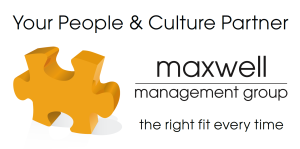Sponsored by

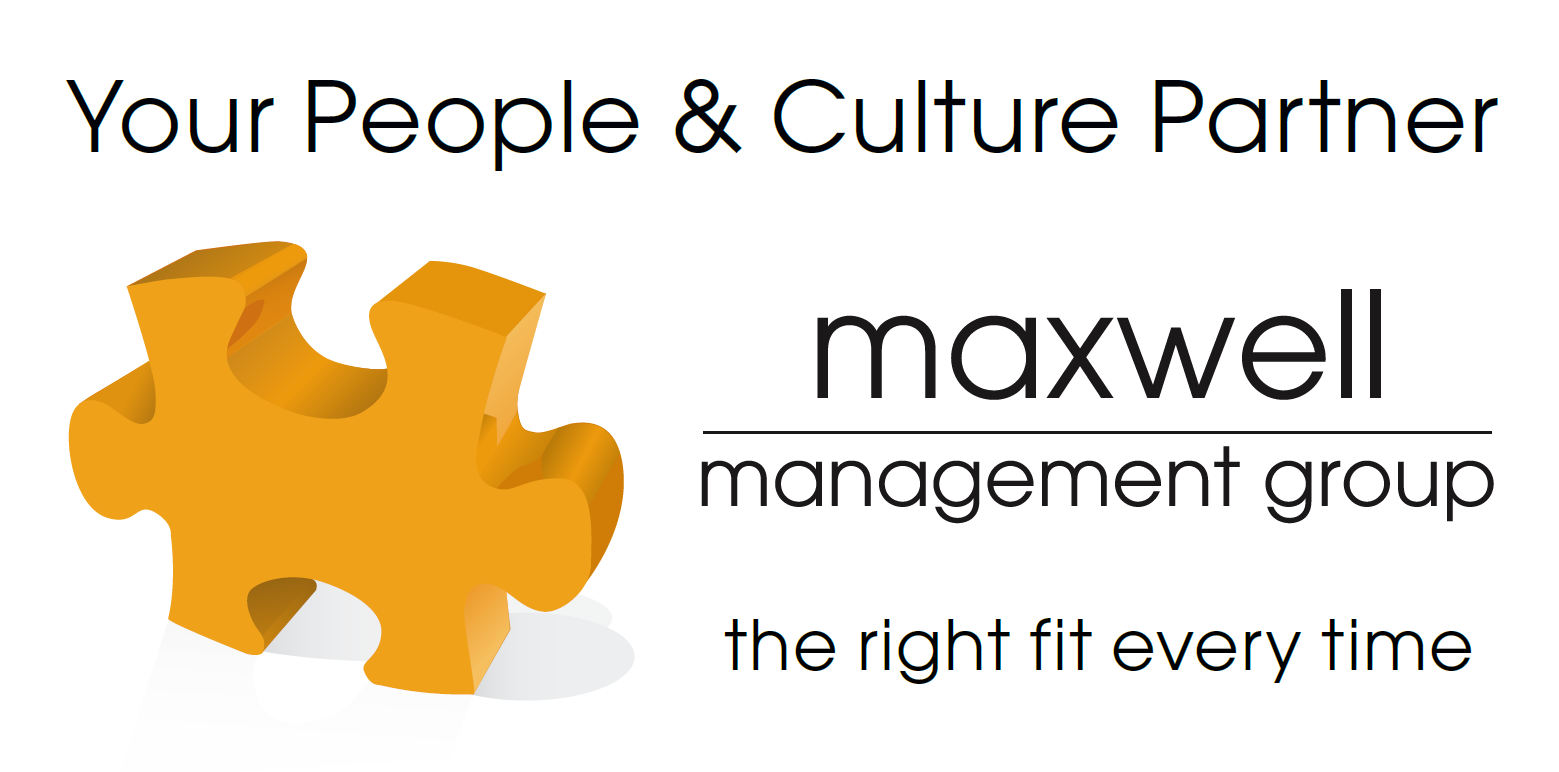
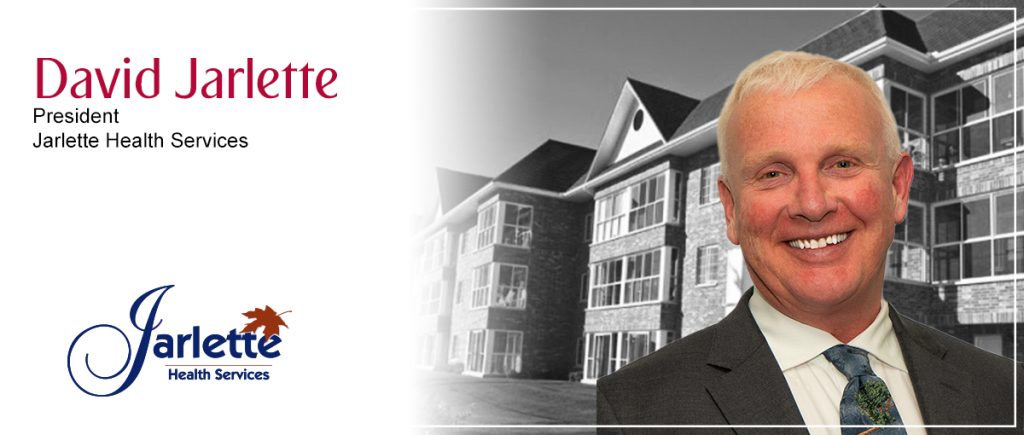
Meet David Jarlette, President of Jarlette Health Services. From the tender age of ten, David has been a part of the retirement community sector, starting as a housekeeping aide and working his way up through the ranks.
A registered nurse passionate about helping people, David pursued different experiences before ultimately returning to the family business. Now, as leader of the organization that operates 22 retirement lodges and long-term care homes combined, and more construction underway, David leads his teams by example and honesty – values that his parents and mentors instilled in him throughout his life and career.
As part of the ORCA CON 2023 program, Jane Taber, Senior Vice President, Public Affairs, NATIONAL Public Relations, sat down with Jarlette to unpack his thoughts on leadership, his career journey, working in the family business, and his advice for young people who want to enter the sector and grow within it.
Conversation with David Jarlette
Note: This interview transcript has been edited for content and length.
Jane: Let’s talk about leadership because that’s why we’re here today. To learn about how David inspires his people and how you actually got into the business. So, before we really dive into your background, tell me what it is that really jazzes you about this sector. What do you like about the landscape? What do you like about the area that you’re in?
DAVID JARLETTE:
I love the sector. I think it’s the only sector in Ontario where you have people that want to work with seniors. They love people. They want to do right by the residents. It’s just a great field, and to work in a sector where you can call your competitor, to get advice, to get help… you develop relationships over decades. It’s just awesome. The people in here are my family and that’s a really nice feeling.
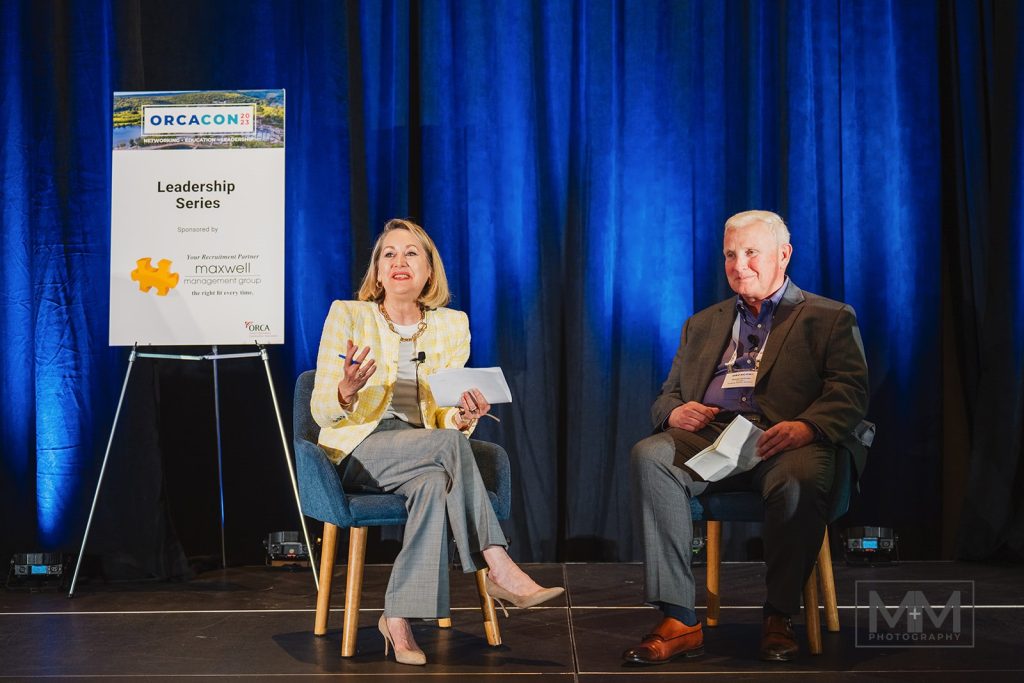
JANE: Oh, isn’t that nice? Over breakfast, I was sitting with some people who work in Norwood, Ontario, and I was asking them what they thought about the business and what they really liked about it. They said to me it was the people. It was the people who really drove it; the residents, the people that you meet, and the fact that you don’t know what you’re going to walk into every day. It is always different. And so that’s something that they really enjoy and keeps them going. Is that something that you see, that it’s always different?
DAVID JARLETTE:
It’s always different. It’s exciting. There’s lots of change. Change never stops. You think it is, but it’s not. The care and services that we’re providing get better and better and better every year as we, as a sector, move forward, providing retirement services to our residents.
JANE: Okay, some short snappers now. How long have you been in the sector?
DAVID JARLETTE:
I grew up in the sector as a young boy. I’ve been in it for 53 years. I’m the old guy.
JANE: Well, we could have a little argument about that. Okay, so 53 years in the sector. How many children do you have?
DAVID JARLETTE:
I have four children; I have three boys and a daughter, and I’m blessed to have them all working with me, so that’s pretty cool. My wife has supported me through my entire career, and that’s what I think has helped me be successful.
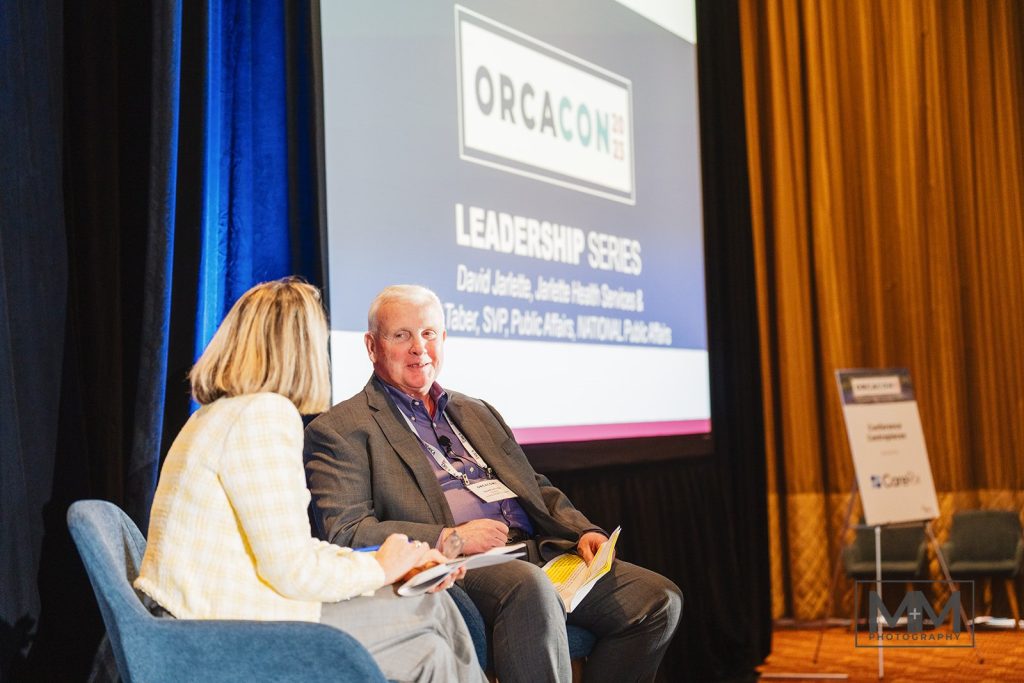
JANE: So, this has continued to be a family business. What do your kids do in the business?
DAVID JARLETTE:
I have one that’s in charge of accounting for the organization. My daughter decorates. She’s my assistant with our COO and a team member who runs our retirement home division. I have another son that’s an electrician, so he’s helping with our construction and learning that side of our business, and I have a son that’s 25 years old and he is a general manager in one of our retirement lodges. So, he’s learning that part of the business.
JANE: Okay, there you go. So, it’s a real family business and it’s a third generation in the business right now. There must be something special that David’s doing or maybe this is what it’s like across the sector. What are you doing in your spare time?
DAVID JARLETTE:
Well, I do lots of things. But what I do for a living is actually what I love to do. I love to snowmobile. I love to fish. I’m an avid bicycler. I bicycle to work every day. I do my 20 kilometers to keep my zen.
JANE: That’s great. I wanted to ask, is there anything you stream? What’s your favorite Netflix show, favourite book, or anything like that? What does someone who runs all these residences across Ontario do?
DAVID JARLETTE:
Well, some people in my house say I watch too many documentaries. I’m interested in learning things.
JANE: Have you watched anything or is there any leader who you like to follow? Somebody who inspires you in your workday? Somebody who you would like to emulate, or you do emulate.
DAVID JARLETTE:
I’ve never thought of that. I think if I ever were to look at a leader that really impressed me, it was Obama in the United States, and how he pulled everybody together; he was inclusive. You could believe that what he was saying was the truth. When I look at him, he was a true leader.
JANE: Yeah, he was somebody who would follow through on what he said, or at least try to do so. So, that’s how you would conduct yourself then as you’re going about your everyday business. Following through and being inclusive. Can you talk a little bit about what that looks like in your business?
DAVID JARLETTE:
If I go backward in our family, part of our strength came from my parents. My parents set the example of having a strong commitment to the caring of our residents. It was the ethics that they brought to it by being truthful. Leaders have to do by example.
JANE: Give us a couple of examples. So, your parents were very communicative; there were no secrets. People would understand what was happening. Talk a little bit about that.
DAVID JARLETTE:
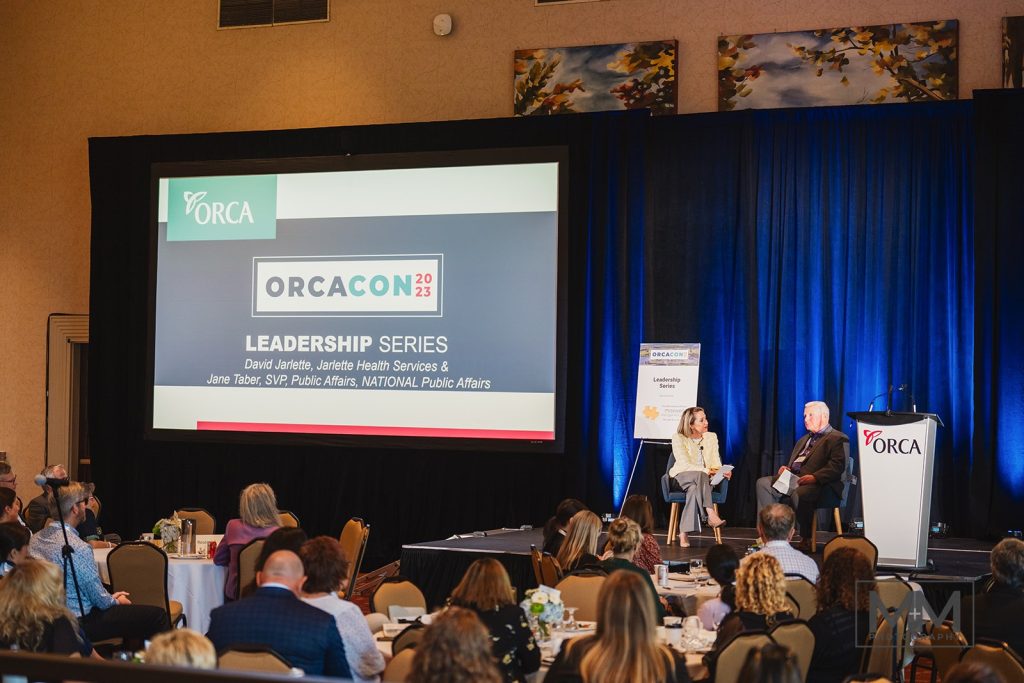
If I were to make a mistake, which apparently, I make a lot of mistakes – it is actually a good thing because it means I’m trying. But, if I make a mistake, there’s nothing wrong with saying I’ve screwed up. That does develop trust with your team because we’re all human. We all make mistakes. And how we work together as a team to fix those mistakes would be a great example of being truthful.
Another great example would be just showing up for work on time. If you’re the leader and you don’t show up on time and you have an expectation for your staff to show up on time, we have to do what we do by example. Because we’re leaders, we’re watched pretty closely under a magnifying glass. So, we do have to as leaders, make sure we keep ourselves in check and balance, and make sure we do those things that we’re expecting of the others that work with us.
JANE: Everybody thinks that they have to invent something new to keep everybody going, but it’s those small things; showing up on time, communicating, being inclusive, making sure that everybody feels that the job that they’re doing is an important job. Obviously from your experience it is because you grew up in the business. What did you start doing? What was your first job in the business?
DAVID JARLETTE:
My first job in the business was as a housekeeping aide, and I was somewhere between 10 and 12 years old. That was my job before I went to school in the morning and when I came home in the evening. It was things like delivering meals to our residents, doing laundry, washing dishes. It was everything, and it was great.
JANE: So this was the family business at 10 years old. Before school, what would you be doing?
DAVID JARLETTE:
Before school it was breakfast time. It was an old farmhouse that we served with 23 beds. It had stairs, and we would carry the trays to all our residents throughout the home and help some residents set up and help some residents eat. We’d tidy it up all afterward and bring it back downstairs. That was a tradition that we did every school day. It was fun; we enjoyed it.
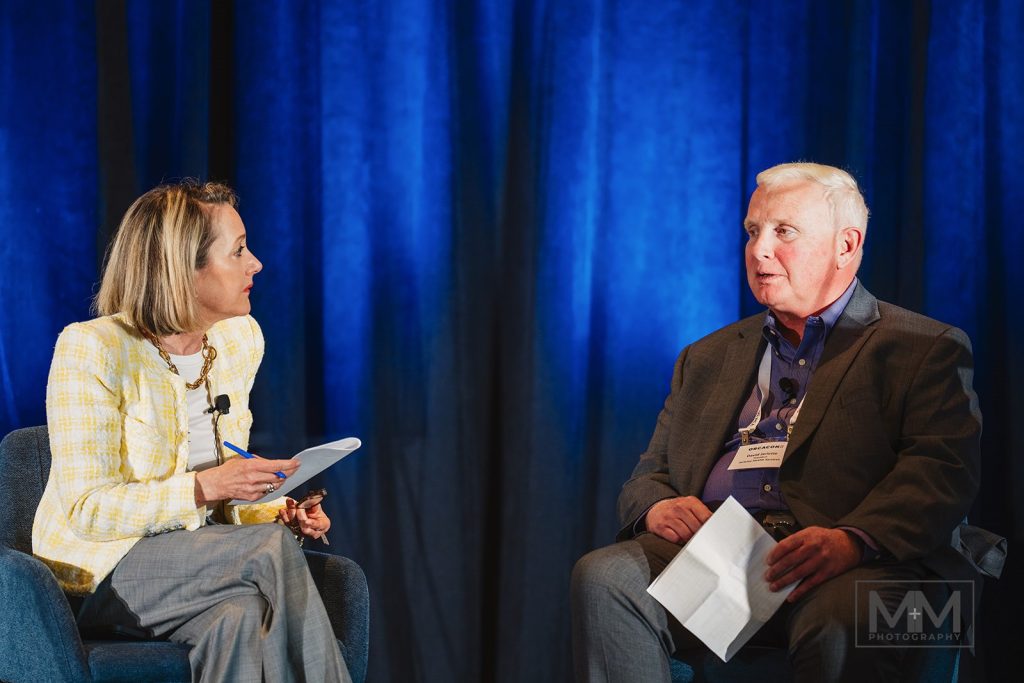
JANE: How about after school?
DAVID JARLETTE:
After school would be dinner time and doing dishes, just stuff like that. We all chipped in.
JANE: Is that something that your kids did as well? Did you did you use that same example with your children?
DAVID JARLETTE:
My children were very lucky. They got started at the bottom. Some worked in our accounting department assisting in different jobs. We do a lot of construction so many of my children worked as labourers on construction jobs and learned what it takes to develop a home. Any of them will roll up their sleeves and pitch in no matter what it is. We’re not too good for any job, and I think that’s really important.
JANE: Yeah, that’s a good message. Let’s get back to you. I’ve moved on to your kids a little bit, but let’s explore more. So, from housekeeping, you graduated to what?
DAVID JARLETTE:
I wanted to go into nursing, so I left high school and went to get my diploma in nursing. I did that at George Brown College in downtown Toronto and had my work experience in the downtown Toronto hospitals. I moved from there; I worked at Baycrest’s centre for geriatric care in Toronto and I worked in a general hospital. I worked at Waypoint Mental Health, which traditionally has been known as Penetanguishene Mental Health Centre, in admissions, and I had lots of different experiences. It wasn’t just mental health, it was also admissions, and I also worked a bit in geriatrics. So, those were the geriatric residents that had behavioural issues and they needed a lot of unique ways of dealing with those behaviours. So, I’ve learned a lot.
JANE: Was it always in your mind that you would be going back to working in the family business, or was this an act of rebellion that you went to Toronto, and went into nursing, and you’re working at Baycrest and places like that?
DAVID JARLETTE:
I wanted lots of experiences because I had to develop confidence in myself. I had to say, “I can do it on my own”. So, my parents always kept on trying to recruit me and I wouldn’t work for them. So, that went on for a couple of years. But they did twist my arm, and that’s where I wanted to go, but I had to develop skills first. So, I say to anybody, it doesn’t matter what it is. Diversity and learning lots of different jobs and different things are so important. Retirement living is a great first step into developing your career.
JANE: Yeah, so you think that those skills were really important for what you’re doing now. Do you think that it’s necessary for people who are working in the business to have a nursing background or to have a background in mental health? Is that what you’re looking for when you’re hiring?
DAVID JARLETTE:
No, I’m not. I would say everybody in here is here because they’re really intelligent. When we’re recruiting, I’m looking for candidates that have people skills. I think what I learned from working all these different jobs is the importance of people skills. Because those with people skills work hard. They’re good people. They are an important part of the function of operating our homes. And we have to support them and work with them, and ensure that they understand their value to the organization.
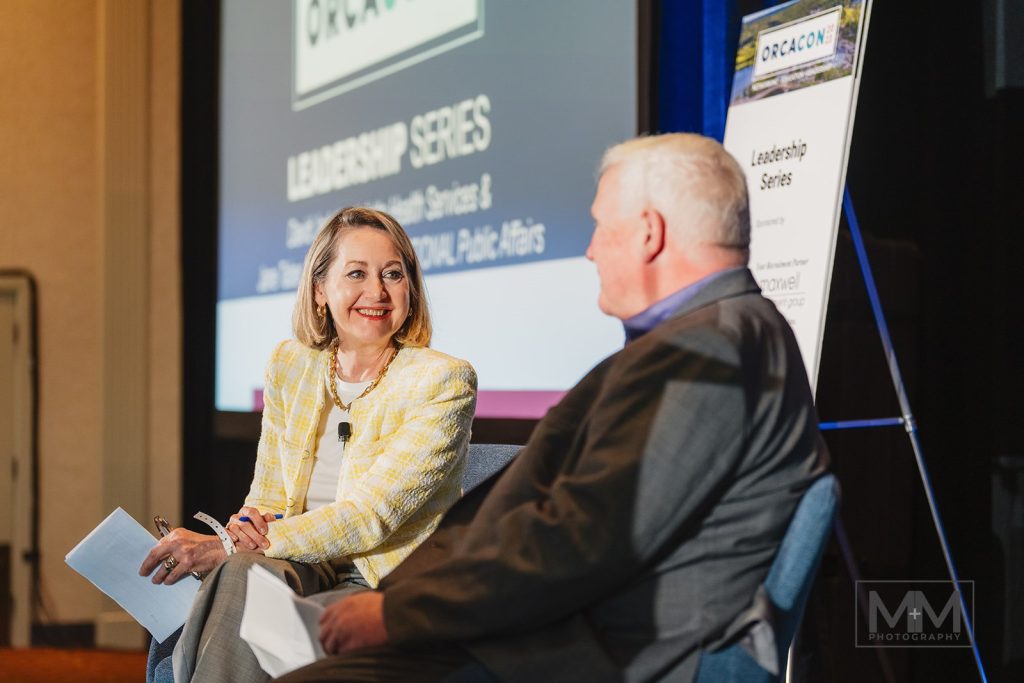
JANE: One thing that we forgot to mention is that we’ve talked about the housekeeping, we’ve talked about how you’ve had your nursing experience, but you’ve also been involved in construction. At one point, and I can’t remember how old you were, you were a mason or helping brick layers, actually physically building the residences, right? Tell us about that.
DAVID JARLETTE:
So that’s just another one of my many experiences, but that was a great experience doing labour for a block laying company. I had to manually carry blocks up, floor by floor, and one or two at a time. So, it was doing things like that. I did learn how to do some masonry, but it’s all the other things; it was painting and cleaning. Labourers clean up the mess after the workers do their stuff, so it was just learning what happens in constructing a building. It helps that nothing scares me.
JANE: Does that building still exist? Did you do a good job?
DAVID JARLETTE:
That building still exists, yes – 45 years later.
JANE: In all those different areas that you were working in, were there people along the way – knowing you were probably the owners’ kid – who inspired you or who you really learned from? Give us an example of what you learned.
DAVID JARLETTE:
Thinking about it, I really had three really important people that helped me. They didn’t worry about my parents. They were the ones that were clear about what outcomes they wanted. They had high expectations. They communicated those expectations to me. If they didn’t think I mopped behind a door and got all the dust out to ensure it was clean, they would communicate that to me. So, they were very clear about what they expected, and what they wanted, but they were also always there for me. If I had an issue or needed something, they would help me right away. So, it’s having that trust in those people.
And I noticed those people – with all their stuff – if their staff needed something or their staff said something was wrong at home, they were always the ones that were there to support those staff members. It was cool. They built up their credits. They cashed them in later.
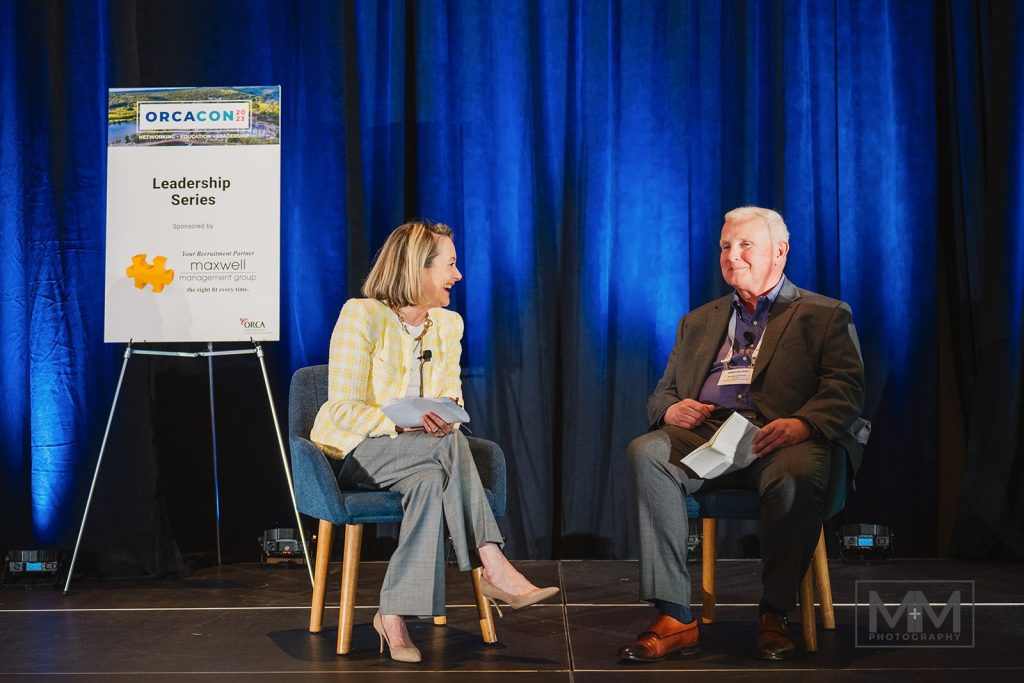
JANE: There you go. There’s a German woman you mentioned in the housekeeping area. Tell us about her, because I think she was someone who you seemed to really learn from, like really detailed stuff that you now have brought to your career today.
DAVID JARLETTE:
I can tell you one thing, whether a building is old or new, it can be cleaned. So, there’s no excuse for being clean, and having that high expectation is good. She would make sure I had my putty knife out to make sure that anything lying on the floor was cleared and cleaned up. She taught me how to change a newspaper into a garbage bag, and just things like that. We don’t think of that nowadays because we have plastic bags.
JANE: But it was that kind of attention to detail that she was able to pass on to you, and have you carried that through then with your teams?
DAVID JARLETTE:
That’s what we have to carry through as leaders to our teams. That’s so important. Our job as leaders is to make the people who work below us successful. If we don’t communicate what our expectations are, support them, train them, and get them there, they’re not going to be our future leaders. So, we all have a job in our sector. We need to train, and we need to develop people. We’re not going to get there by not having those conversations with them. I believe your staff expects you to be a leader. They don’t want to work for their friend. They want you to be a leader. Leaders push people; they stretch people.
JANE: When people – and younger people – are thinking about getting into this sector, what do you tell them?
DAVID JARLETTE:
I wouldn’t worry too much about where you begin. Get lots of different experiences. They could be experiences in different ways. They could be committees in your work environment, whether they be about safety, infection control, staff retention. Get involved and learn all the different things because that’s what’s going to build you to be a leader going forward. As an organization, Jarlette has always pushed from a leadership development perspective for our senior staff to get involved with our associations like ORCA or OLTCA. But get involved, because as leaders, we need to make sure that we advocate on behalf of our residents. If we don’t advocate for the right things to happen for our residents as a sector, then it’s not going to improve.
JANE: That’s true. Do you think that young people look at a career in your area as a career where they can really move up and ahead, or do they just see themselves sort of stuck in this one spot? I’m curious about that because I think your sector is big. You’ve done lots of jobs. So, I’m wondering how people can think about how they can either move sideways, or up, to move ahead, to become a leader like you?
DAVID JARLETTE:
I think there’s lots of opportunity for young people to work in our sector. There’s going to be a lot of growth in our sector and it’s exciting and it always changes. As I said earlier, where do you meet so many nice, caring people that want to do good things for other people? So, it really is a great opportunity. Don’t limit yourself. My Chief Operating Officer (COO) Julia King, she started with us as one of our directors of nursing. She progressed from there after several years to be an administrator.
Julia had some really neat experiences in her past where she was a registered nurse in a home. She was an administrator of a nursing home and a retirement home. She probably even replaced toilets if they weren’t working. She became very diversified in her knowledge, and that’s made her strong now. And then she left me. She went to my competitor if you can believe that. I was very lucky as she came back a couple of years later and joined our operations team. So, she watched over several of our long-term care homes. She became director of operations for our long-term care division and is now my COO. She’s my right-hand person and she has those great qualities of leadership and trust.
JANE: Somebody who has worked herself up through the ranks as a junior person and all the way up to the top. So, there are great opportunities for people to really advance, and as you said, take advantage of organizations like this, take advantage of committees as well so that you can really hone your leadership skills.
There’s somebody else here too I think that we had mentioned. David and I had a little chat on a call before we did this, and so, he’s seated in here. Mike Lavallée, is he around somewhere? Is the Treasurer here? Oh, there goes the hand. Okay, so tell us about Mike, because Mike was a fairly young person. I’m not saying you’re not young, okay? We’re just talking about your roots, okay?
DAVID JARLETTE:
I met Mike when he had hair. Mike started with us doing some consulting work. Mike had this unbelievable ability to orate and write, he was really good at that. He helped us with branding for our organization. Then he moved from there. When my current COO was working as Long Term Care Administrator and left me for the competition, Mike took over her job for a period of time.
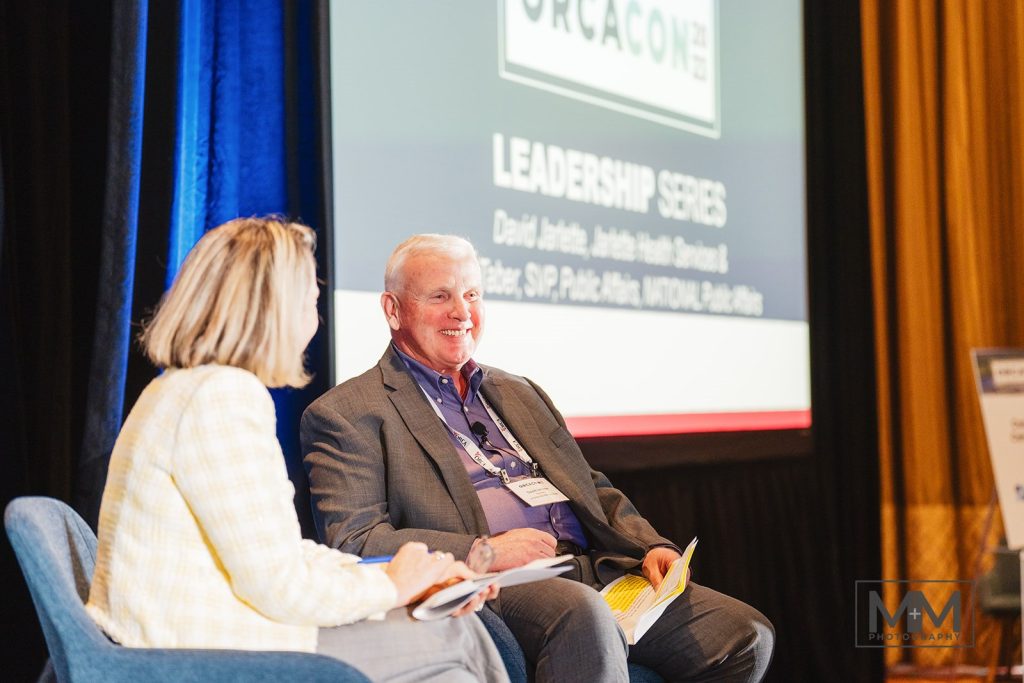
Then he went to our retirement division, and maybe he saw too many Jarlette family members. So, he decided to leave us and take on some other challenges and look where Mike has gone. Mike is a leader in our sector. I don’t know how many years he’s been president. He’s done exemplary stuff for our sector.
JANE: Yeah, running Seasons now. These are only two people, but they do leave you… and I guess they come back.
DAVID JARLETTE:
When he sees the light, he will be back.
JANE: In terms of professional development, what are the opportunities there, so people can tell their people that there are opportunities for that kind of advancement?
DAVID JARLETTE:
We’re lucky at Jarlette; we do offer education. We do encourage people. We have mentorship programs for people to move up in the organization. We do lots of interviews. We do what we call stay interviews. If you’re the one with the right talent, and are bright, and have good people skills, we do want people to move up within the organization, and it’s just one job at a time. We can have an activity director move up to an administrator and it’s just through mentorship, training, and supporting courses. I think a great thing for Jarlette is we’ve grown steadily, and we continue to grow. So, that’s also provided lots of opportunities for people to find those niches or opportunities in our organization.
JANE: We’ve just got a couple of minutes, but I wanted to get a little look at the landscape that you would all be familiar with. We have heard so much about labour shortages, and all those kinds of issues since COVID-19. Is this something that has really affected your sector?
DAVID JARLETTE:
I think it has during the peak of COVID-19, it certainly has been a challenge for us all. We see that our labour forces are starting to stabilize, but the works not done. As an organization, we need a lot of different strategies to recruit. Retaining is so important. We just have to keep working at that and never allowing it to leave our eyesight. That’s so critical to us. In order to provide good care, you absolutely need good staff.
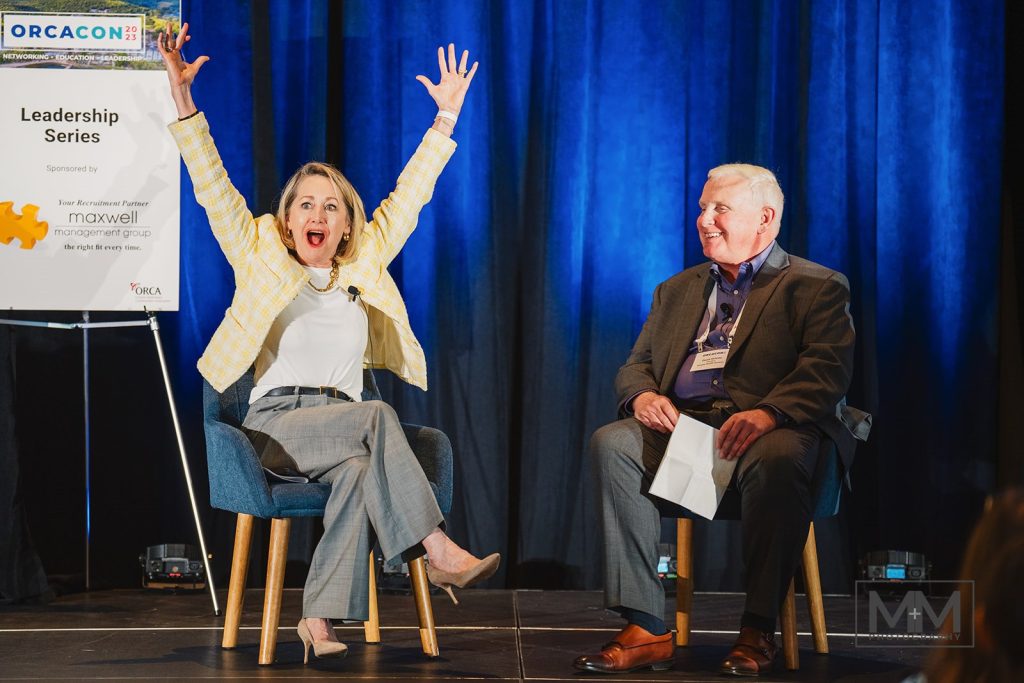
JANE: I’m going to challenge you in our last minute or so. What would you say is the one ingredient to attract the staff and then retain them? So maybe that’s two ingredients. What do you feel works at Jarlette?
DAVID JARLETTE:
I think what’s good at Jarlette is that you have to have mission and vision and values. They have to know that they’re working with an organization that wants to move things in the right direction. They have to believe in why they work for your organization.
You have to spend money and invest in people to develop them as leaders. If you don’t have good leadership, you don’t have retention. I can see that in pretty much any home. If you have turnover, it’s usually a leadership issue that you need to solve or help the person that is the leader. I think that’s really important.
Trust is so important. Your staff have to trust you. Trust comes from so many different things. Trust doesn’t happen in one day; it’s built up over days, months, years, and decades. But if you’re able to build up those credits, you’re going to have a really good team working behind you. Trust also means that your team is going to make mistakes. Trust also means that they’re going to challenge you as a leader. Like today, I had to be stretched by my COO to actually come up here and do this interview, but that’s actually great leadership – having the comfort to push and stretch up and down.
JANE: Okay, well thank you very much for joining us. David has me convinced. I want to move over and join the sector now. Thank you very much. Ladies and gentlemen, David Jarlette.
Dynamic. Smart. Energetic. Committed.
Leaders in Ontario’s retirement communities sector are changing the way the world thinks about senior living.
Join ORCA as we speak to the premier leaders in the sector today – about who they are, why they are here and where we are going.
Sponsored by:
